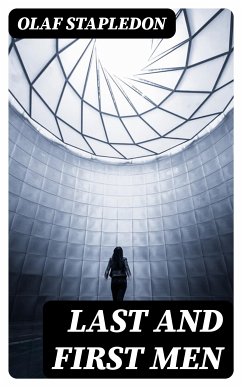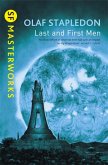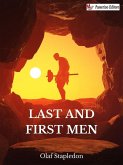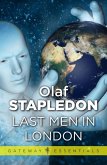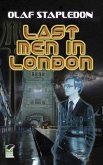Olaf Stapledon's 'Last and First Men' is a groundbreaking work of science fiction that spans billions of years and charts the future evolution of humanity. Written in a bold and visionary style, Stapledon's narrative explores the rise and fall of multiple human civilizations, as well as the profound impact of technology and social change on our species. The book's speculative scope and philosophical depth make it a cornerstone of the science fiction genre, influencing writers such as Arthur C. Clarke and Isaac Asimov. Stapledon's ability to blend scientific speculation with moral and ethical considerations elevates 'Last and First Men' to a timeless work of speculative fiction. Readers will be captivated by the grandeur of Stapledon's vision and the thought-provoking questions he raises about the destiny of mankind.
Dieser Download kann aus rechtlichen Gründen nur mit Rechnungsadresse in A, B, BG, CY, CZ, D, DK, EW, E, FIN, F, GR, H, IRL, I, LT, L, LR, M, NL, PL, P, R, S, SLO, SK ausgeliefert werden.

